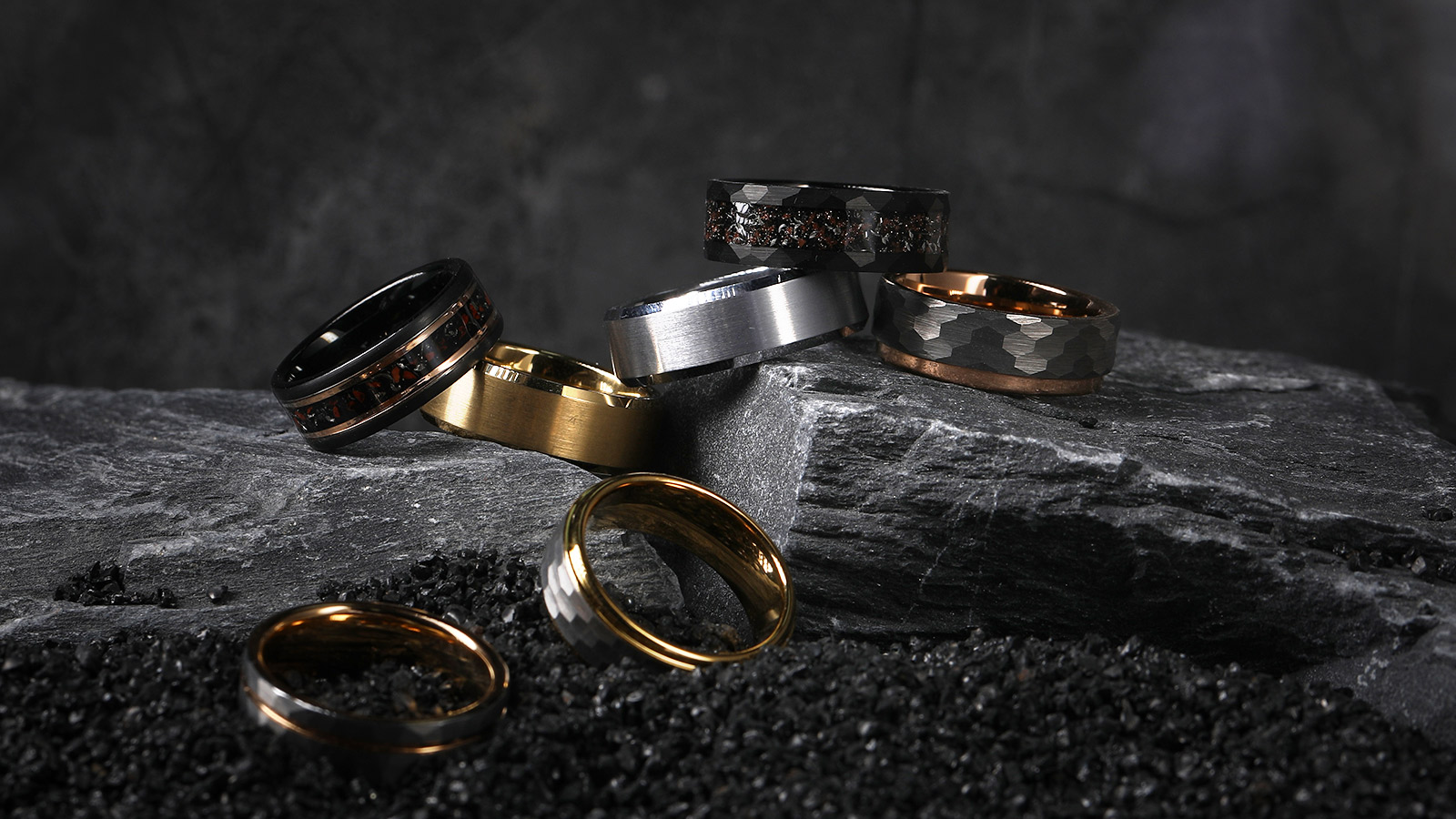Unveiling the Ultimate Battle: Titanium vs. Tungsten Rings - Which One Will Capture Your Heart?
In the world of modern jewelry, rings made from titanium and tungsten have gained immense popularity, especially as symbols of love and commitment. These materials stand out not just for their strength and durability but also for their unique aesthetic appeal. Whether you're shopping for an engagement ring or a wedding band, the choice between titanium and tungsten can be daunting. This article will delve into a detailed comparison of these two materials, exploring their characteristics, pros and cons, and helping you decide which might be the ideal choice for you or your loved one.

Overview of Titanium Rings
Titanium is a lightweight metal known for its exceptional strength and hypoallergenic properties, making it a popular choice for rings. Its natural lustrous sheen can be finished to showcase a variety of designs, from sleek and modern to intricate and vintage. Unlike traditional metals like gold or silver, titanium's unique properties allow it to hold up against daily wear and tear, making it a practical yet stylish choice for those who lead active lifestyles. The versatility of titanium rings means they can be customized in a variety of styles, colors, and finishes, appealing to a wide range of personal tastes.
Pros of Titanium Rings
Choosing a titanium ring comes with several advantages. First and foremost is its durability; titanium is known for its resistance to scratches and dents, ensuring that the ring retains its beauty over time. Many individuals also find titanium rings comfortable for daily wear, as they are lightweight and less likely to cause irritation for those with sensitive skin. Additionally, because titanium is less expensive than precious metals, it allows for a balance between quality and affordability, making it an attractive option for budget-conscious couples.
Cons of Titanium Rings
Despite the numerous benefits, there are a few downsides to consider with titanium rings. One significant drawback is the difficulty in resizing; titanium is a hard material, which means that if your finger size changes, adjusting the ring can be a challenge. Furthermore, while titanium rings can be designed in various styles, intricate designs may be more limited compared to other metals, potentially restricting options for those looking for highly detailed craftsmanship.
Overview of Tungsten Rings
Tungsten, a denser and heavier metal compared to titanium, is known for its remarkable scratch-resistance and luxurious feel. Its weight gives it a substantial presence on the finger, often appealing to those who prefer a heftier ring. Tungsten rings come in a variety of finishes, from polished to brushed, and can be found in a variety of colors, making them a versatile option for many styles. Moreover, tungsten’s modern aesthetic often aligns with contemporary design trends, making it a favorite among couples looking for something unique and stylish.
Pros of Tungsten Rings
The primary advantage of tungsten rings is their exceptional durability; they are one of the hardest metals available, making them highly resistant to scratches and wear. This feature ensures that the ring will maintain its appearance even after years of daily use. Additionally, tungsten rings often come with a luxurious feel, providing a sense of quality that many couples desire in their wedding bands. The wide range of design options allows for personalization, ensuring that couples can find a ring that perfectly fits their style.
Cons of Tungsten Rings
On the flip side, tungsten rings do have their disadvantages. One of the most significant issues is their brittleness; while they are highly durable, they can also crack or shatter under extreme force, which may be a concern for those who work with their hands frequently. Like titanium, tungsten rings can also pose challenges when it comes to resizing, as the hardness of the metal makes adjustments difficult, if not impossible, in many cases.
Comparison: Titanium vs. Tungsten
When comparing titanium and tungsten, several factors come into play. In terms of weight, titanium is lighter, making it a more comfortable option for those who prefer a ring that feels less noticeable on the finger. Tungsten, being denser, has a more substantial feel, which some individuals may prefer. Durability-wise, both metals are exceptional, but tungsten edges out slightly due to its scratch-resistance and robust nature. However, if price is a concern, titanium typically has a more budget-friendly range. Design versatility is another point of contention; while both metals offer unique styles, titanium may have a slight advantage in customizability. Ultimately, the choice between titanium and tungsten may boil down to personal lifestyle, aesthetic preference, and budget considerations.
Final Thoughts on Your Ring Choice
In conclusion, both titanium and tungsten rings present unique advantages and disadvantages, catering to different tastes and lifestyles. Titanium offers lightweight comfort and versatility, while tungsten impresses with its durability and luxurious feel. The decision between the two ultimately hinges on personal preferences, lifestyle choices, and even budget constraints. As you weigh your options, consider what matters most to you in a ring—whether it's enduring strength, comfort, design, or aesthetics. Remember, the right choice is one that resonates with your personal style and symbolizes your love and commitment.

